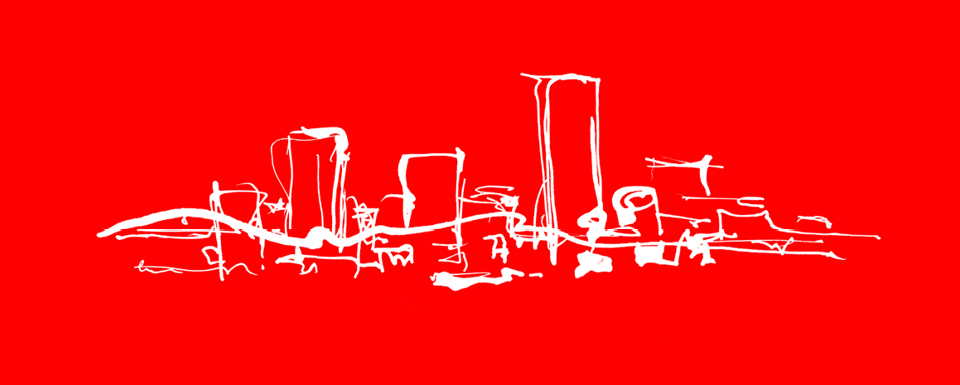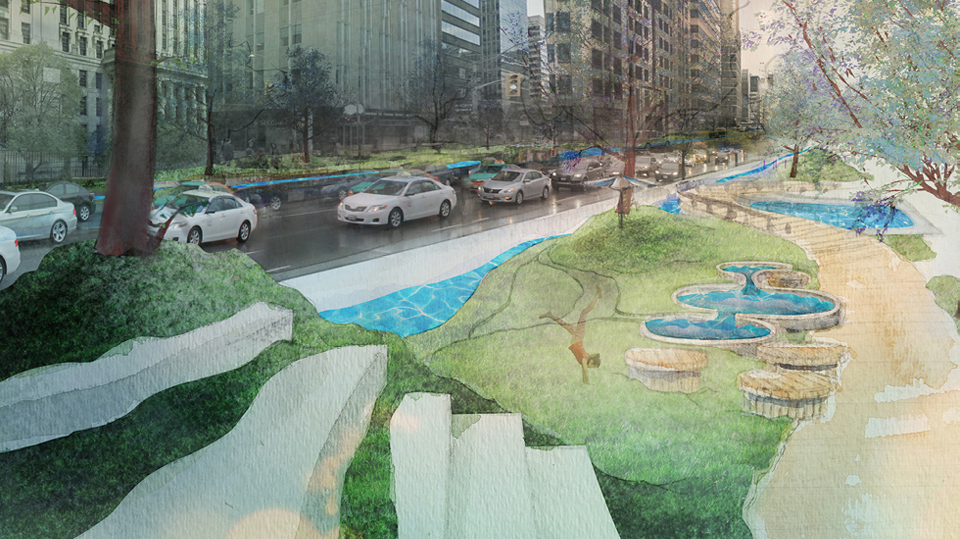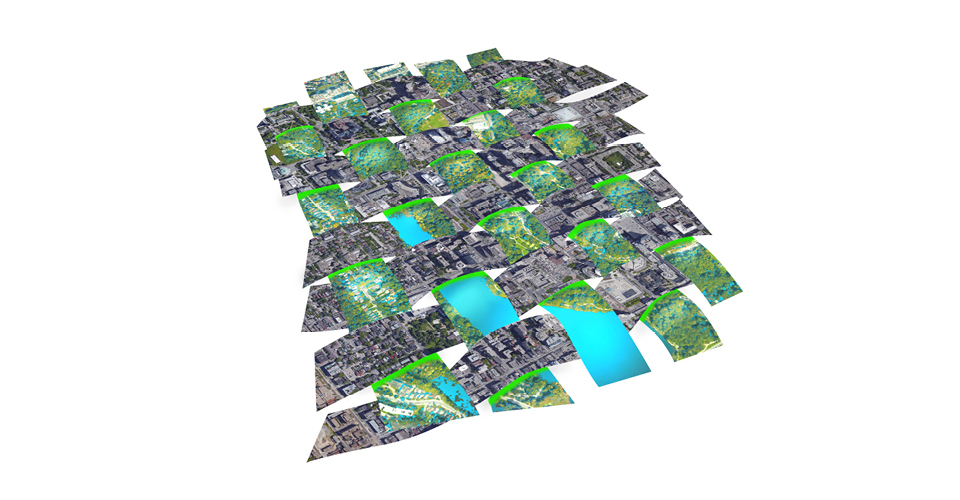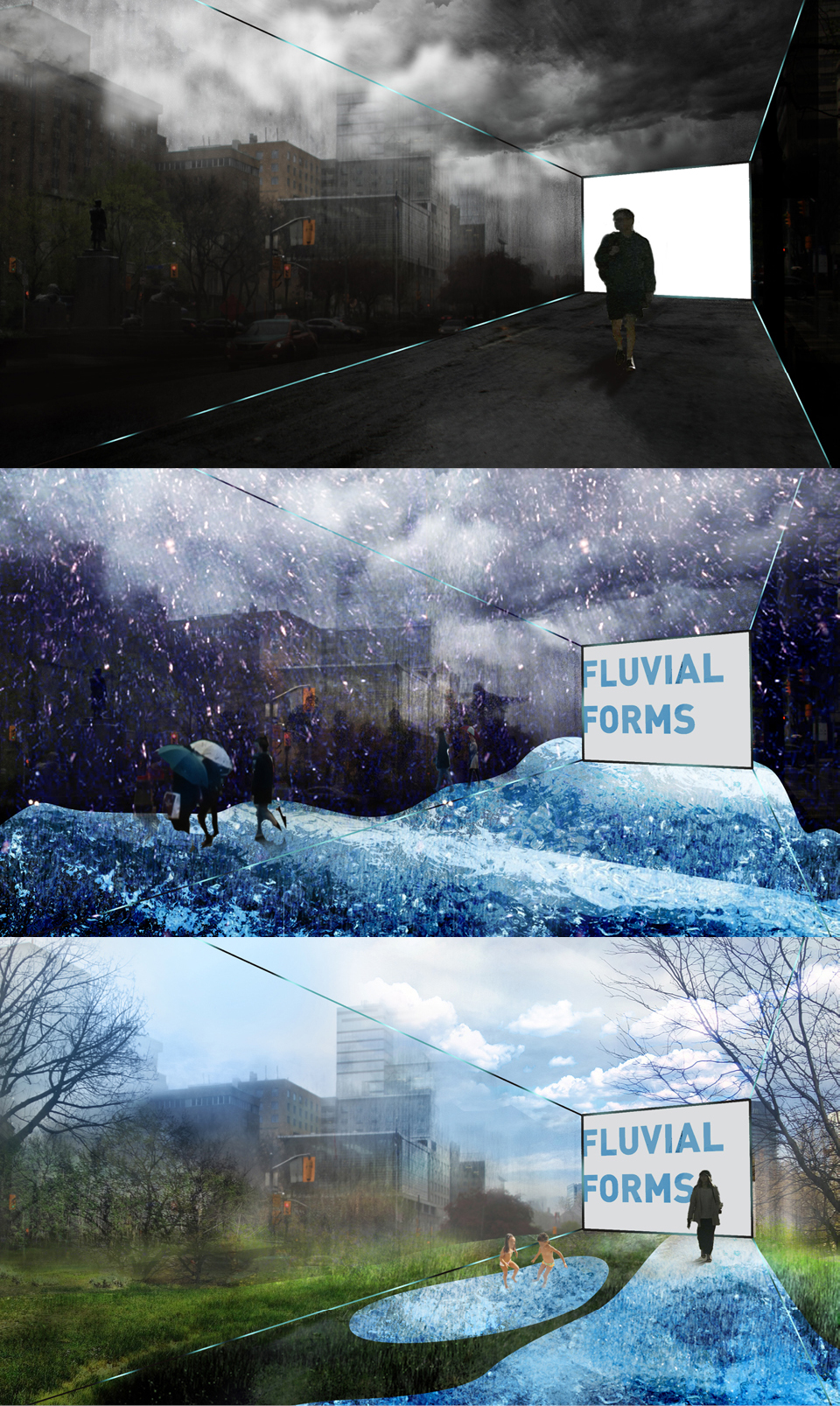Fluvial Forms: Modifiers for a New Era
Venice Biennale Proposal
Climate change is perhaps the single most critical challenge that humanity will grapple with as we move towards the mid-21st century. The next generation of environmental challenges require architects to work holistically in co-creative, collaborative, interdisciplinary teams to confront these challenges in a positive manner.
Canadians have a unique perspective on climate change. As the second largest landmass on Earth, we have unique environmental issues that will challenge our population over the next several decades. The character, history, and future of Canada is inextricably intertwined with water. Canadians across the country have been experiencing increased occurrences of flooding from extreme storms, threats of sea level rise, coastal erosion and areas of permafrost thaw in the North. Canada is surrounded by three oceans with the world’s largest shoreline, and is home to 20% of the planet’s freshwater. Water threats are a critical concern, no longer to be ignored.


Fluvial Forms: Modifiers for a New Era proposes a dynamic, multidisciplinary, immersive experience that is a result of a co-creative, integrated design process. The vision for the Biennale project is to engage Canadians from coast to coast, Canadian architects, designers, students and an international audience in a discussion and foresighting exercise that will allow us to imagine the solutions needed internationally to create environments that can adapt and thrive during the tumultuous period of climate change that is upon us.
The Fluvial Forms team’s shared values of social responsibility, environmental sustainability, and cultural participation, underpin the innovative engagement process that will result in unique architectural responses to water threats arising from climate change. The built environment must be responsive and resilient to harmonize with evolving natural forces precipitated by climate change. By creating concrete, tangible architectural interventions into existing urban fabrics, Fluvial Forms will bring a heightened awareness to the world, and spark an international discussion of these issues.

The built environment must be responsive and resilient to harmonize with evolving natural forces precipitated by climate change. By creating concrete, tangible architectural interventions into existing urban fabrics, Fluvial Forms will bring a heightened awareness to the world, and spark an international discussion of these issues.

The built environment must be responsive and resilient to harmonize with evolving natural forces precipitated by climate change. By creating concrete, tangible architectural interventions into existing urban fabrics, Fluvial Forms will bring a heightened awareness to the world, and spark an international discussion of these issues.
